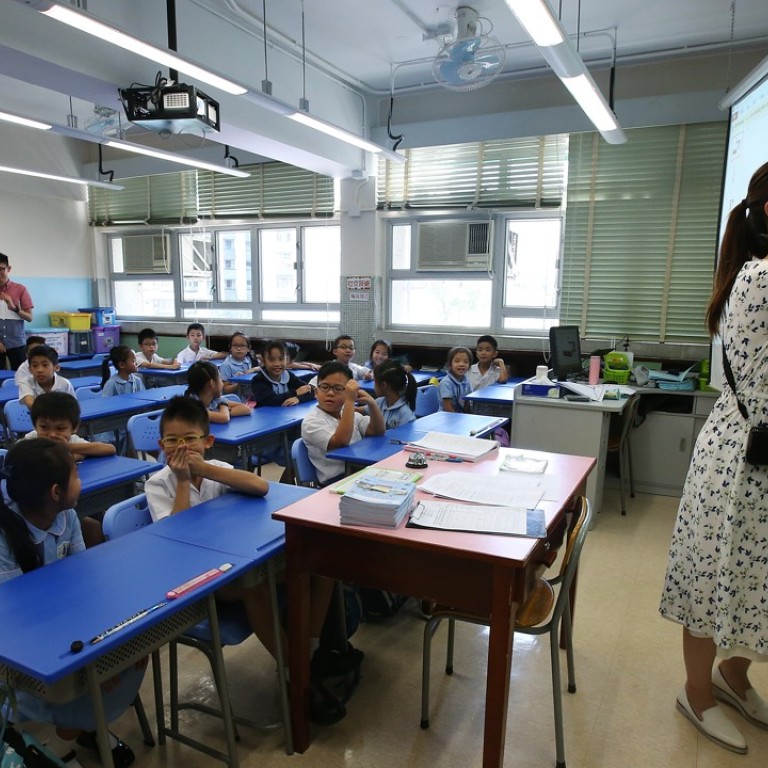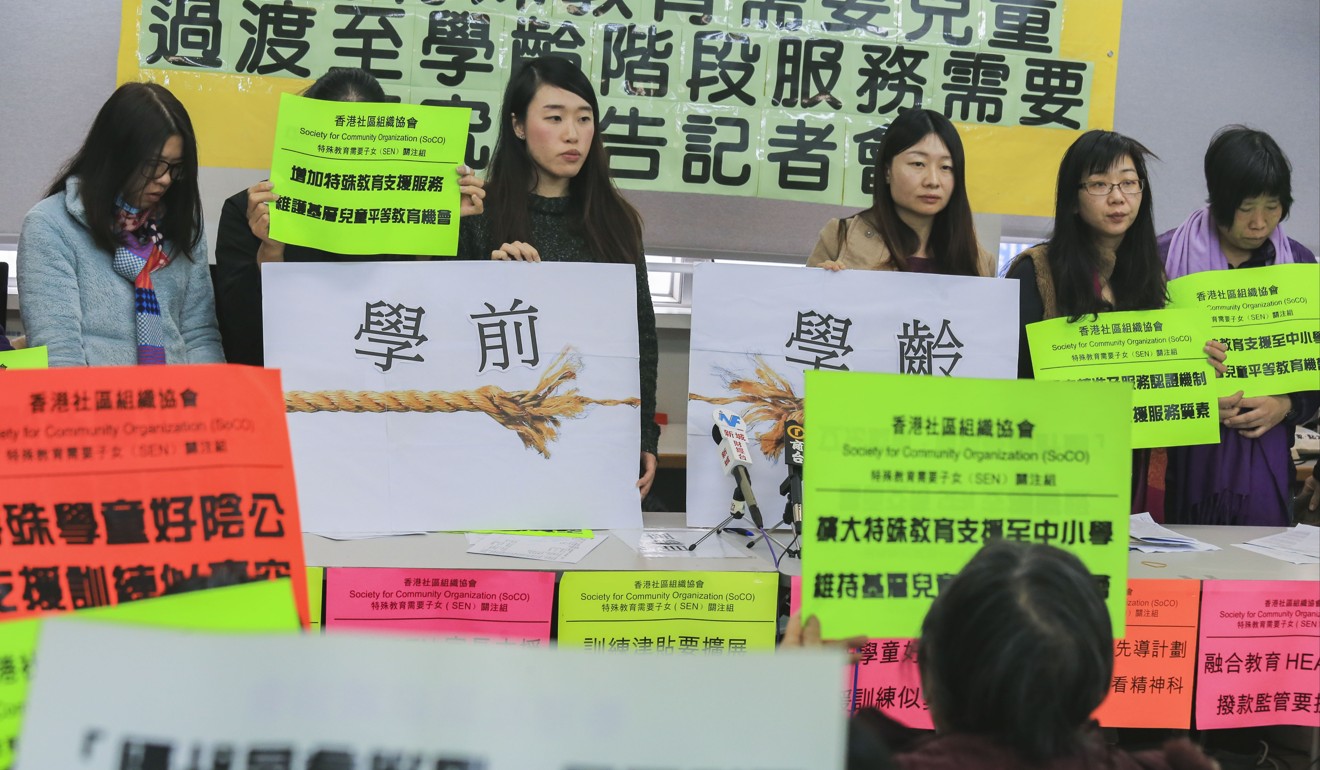
Hong Kong’s special needs children not getting the therapy they need past the age of six
Community group asks government to extend subsidies for therapy from preschool to primary school pupils, as some low-income parents are using the bulk of their funds for private sessions
With some low-income parents using a huge chunk of their earnings to send their special needs children for therapy, the government should extend subsidies for rehabilitation from preschool to primary school, a community organisation said on Sunday.
The Society for Community Organisation (SoCO) based its suggestion on interviews with 10 families, who said their special needs children stopped receiving direct subsidies from the Social Welfare Department (SWD) for programmes such as speech therapy once they entered mainstream schools after the age of six.
Hong Kong students with special needs not properly supported by government education system
The parents then had to dig deep into their pockets – with some programmes costing up to HK$800 per session in the private sector – or queue for up to two years to join programmes at public hospitals.
“Seventy per cent of our monthly income would be gone if we had to pay for private rehabilitation and training services for both sons without government’s subsidies,” a tearful Chun Siu-shan, 36, said on Sunday, as SoCo presented its findings.

Her 10-year-old son Lo Chun-lung has dyslexia and attention deficit and hyperactivity disorder (ADHD), while five-year-old Lo Chun-kit has been diagnosed with delayed development and suspected autism.
Chun-lung attends two therapy sessions each week. Each session costs HK$800 after a 30 per cent discount, and the monthly cost amounts to more than 35 per cent of his father’s HK$18,000 salary, which is the family’s only source of stable income.
Grounds for optimism: Hong Kong’s special needs teenagers gain new confidence as baristas
While Chun-kit received free speech training and physiotherapy every month at his kindergarten, funded by the SWD, Chun was worried about costs once he entered primary school.
“The government should extend rehabilitation services and subsidies for preschool children to primary school pupils,” Chun said.
“The earlier these children get help, the easier they can catch up with other normal kids.”
SoCO, a church-backed group helping the city’s poor, collected the families’ views late last year and said it revealed an abrupt termination of rehabilitation and training support for children between the ages of six and eight.
The Education Bureau currently gives schools block grants to subsidise therapy sessions for its special needs pupils. Although these grants have increased in recent years, parents who spoke to SoCO said their children sometimes required intensive therapy, which mainstream schools could not offer. At best, they received speech training and were given more time in examinations.
Hong Kong’s school system shuts out non-Chinese-speaking special needs children
“My elder son gets seven to eight sessions of training every year in his primary school, which is not very helpful. He is not doing well in terms of his behaviour and his studies, and is vulnerable to being bullied,” Chun said, explaining why she chose to send him for private therapy sessions.
In her maiden policy address last October, Chief Executive Carrie Lam Cheng Yuet-ngor promised annual funding of HK$460 million for better rehabilitation programmes for preschoolers, with as many as 7,000 pupils standing to benefit from therapists conducting sessions at kindergartens.

